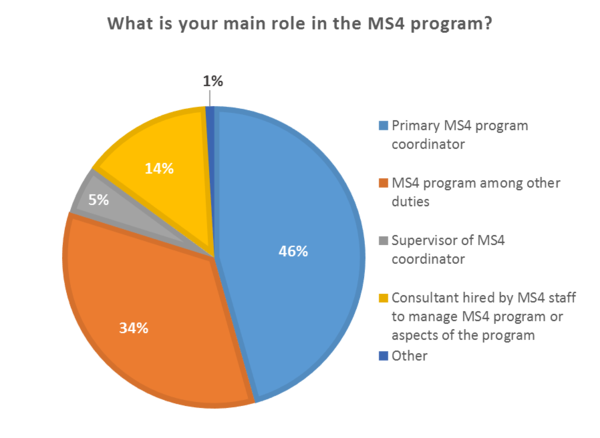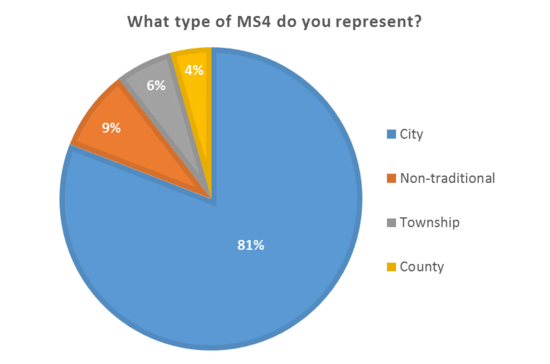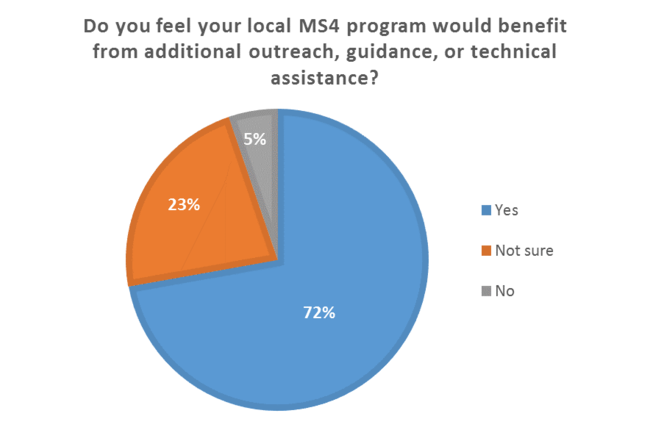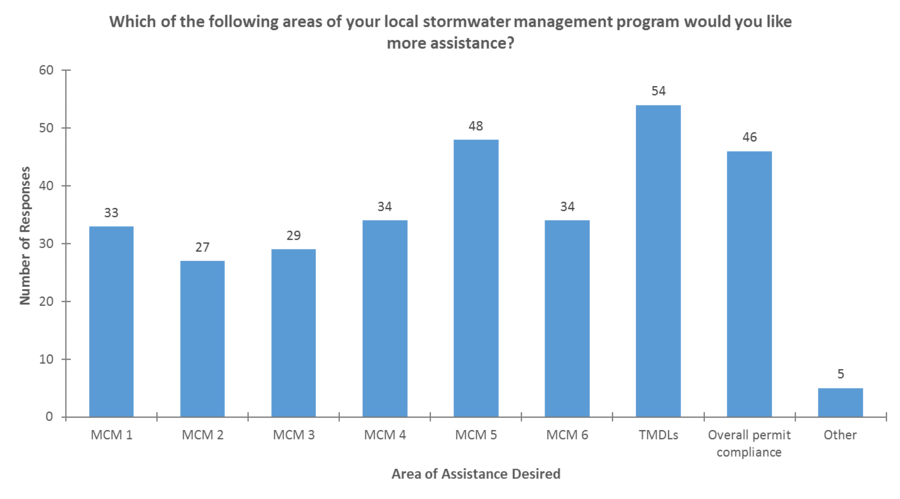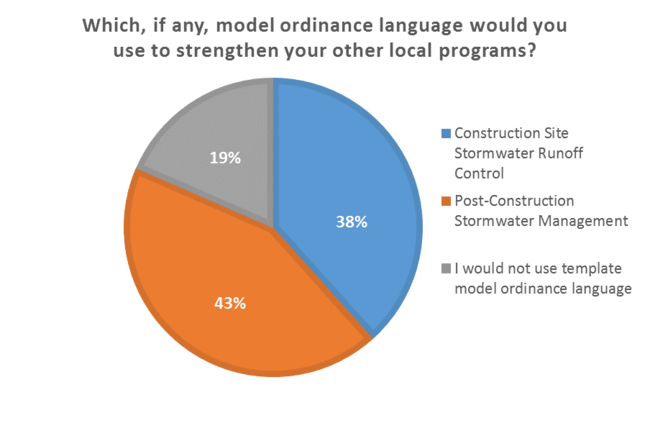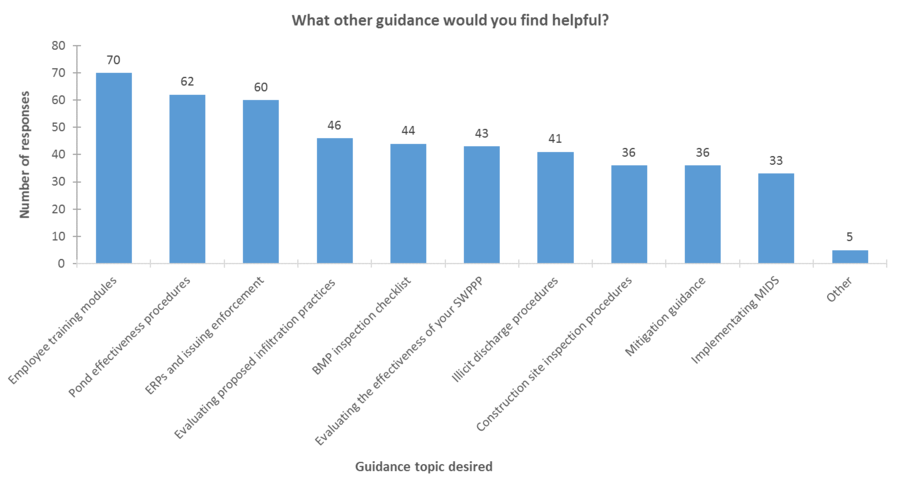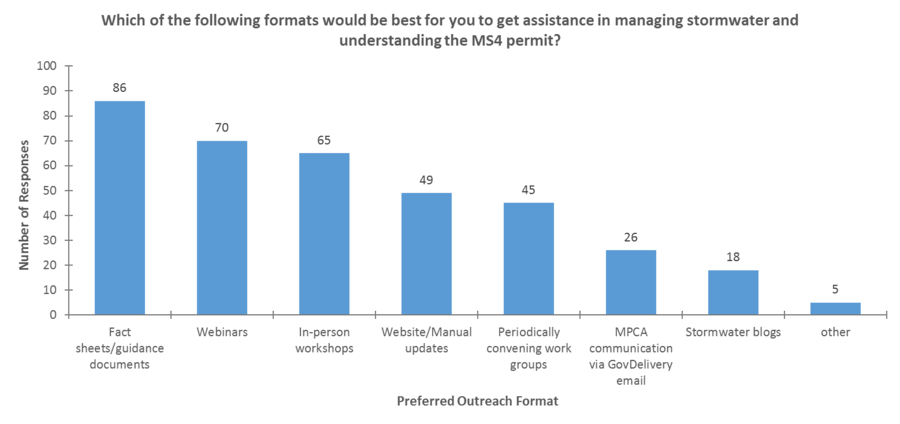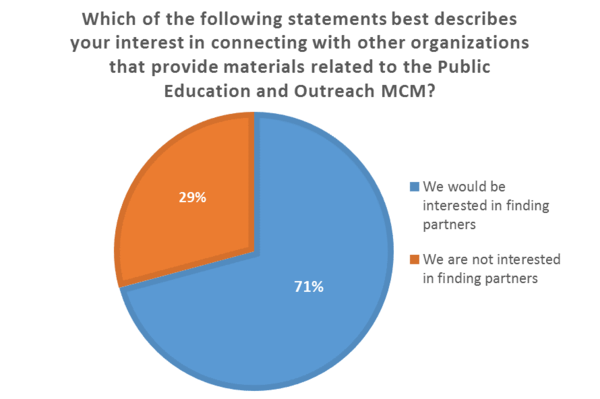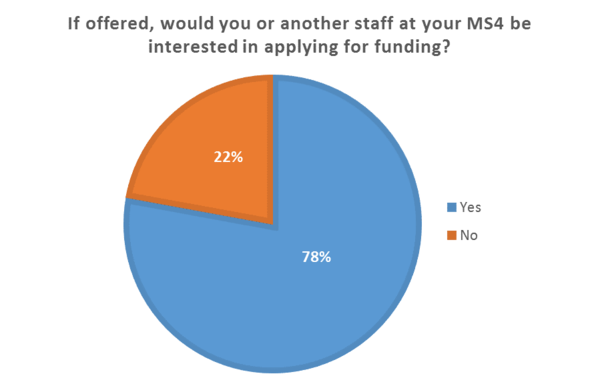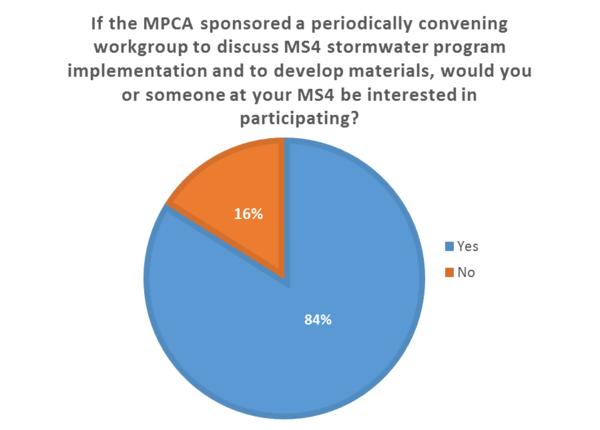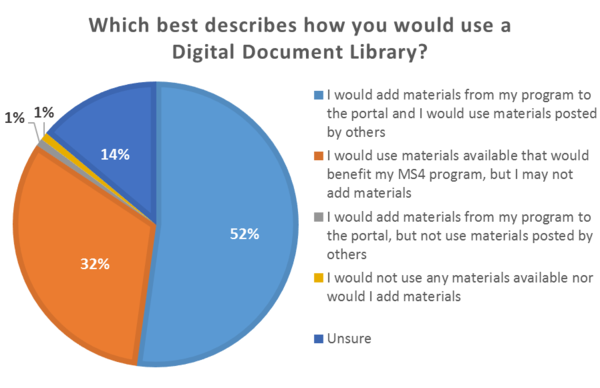
2017 MS4 Technical Assistance and Outreach Needs Survey Results
In the fall of 2017, the Minnesota Pollution Control Agency (MPCA) solicited input to identify technical assistance and outreach needs of the municipal separate storm sewer system (MS4) regulated community. The MPCA conducted an electronic survey of representatives from the MS4 regulated community, including municipal program managers, consultants, and staff involved in implementing local stormwater pollution prevention programs (SWPPPs).
The survey, conducted from October 5 through November 13, was advertised in the fall issue of the Stormwater Newsletter, in an email to all MS4 general contacts, in the Minnesota Stormwater Manual, and via partners such as the Minnesota Cities Stormwater Coalition. We received 115 responses. We have summarized the results of the responses below.
Question 1: What is your main role in the MS4 program?
Forty-six percent of respondents stated they are the primary MS4 program coordinator or are involved in some capacity with their municipality’s MS4 program, among other job duties.
Question 2: What type of MS4 do you represent?
Eighty-one percent of respondents represent cities and 9% represent non-traditional MS4s, which includes correctional facilities, colleges/universities, watershed districts, Minnesota Department of Transportation, and hospitals.
These results are slightly skewed toward cities, which make up 69% of the regulated community. Townships and non-traditional MS4s are slightly underrepresented as they are 10% and 14%, respectively, of the regulated community. Counties are 6% of the regulated community and county staff responded correspondingly.
Question 3: Do you feel your local MS4 program would benefit from additional outreach, guidance, or technical assistance?
Seventy-two percent of respondents stated that they would benefit from additional outreach, guidance, or technical assistance. Five percent indicated they would not benefit from additional assistance. Those who stated they would not benefit from additional outreach were brought directly to question 8.
Question 4: Which of the following areas of your local stormwater management program would you like more assistance?
Question 4 indicates broad areas of the permit where stormwater program staff prefer additional guidance. The areas where more assistance is desired include total maximum daily load (TMDL) requirements (54 responses), Minimum Control Measure (MCM) 5 – post-construction stormwater management (48 responses), and overall permit compliance (46 responses). Responses included as “Other” were writing standard operating procedures, evaluating stormwater modeling and calculating credits, evaluating stormwater reuse systems, stormwater pond testing, and new low impact design (LID) techniques.
The MPCA is currently evaluating how to best meet these needs. For assistance with TMDLs, please visit the TMDL section of the MS4 page. To address overall permit compliance, the MPCA recently added documents to the General Stormwater Program Management Page, and audit prep webinar and page, and a self-audit guidance.
Question 5: We’ve noticed a lot of MS4s have incorporated EPA’s model ordinance language into their regulatory mechanism that prohibits and eliminates illicit discharges and connections to their storm sewer system. Which of the below, if any, model ordinance language would you use to strengthen your other local programs?
Forty-three percent of respondents stated they’d use a model ordinance for MCM 5 – post-construction stormwater management and 38% stated they’d use a model ordinance for MCM 4 – construction stormwater management.
To address the need/request for model ordinance language, the MPCA is currently in the process of drafting a model ordinance language package that should be available in the fall of 2018.
Question 6: What other guidance would you find helpful?
Most respondents want modules for employee training (70 responses), guidance for evaluating the effectiveness of stormwater pond treatment of total suspended solids (TSS) and total phosphorus (TP) (62 responses), and enforcement response procedures (ERPs) (60 responses). The topics included in the “Other” response were maintenance of underground structural stormwater BMPs, an overview of the MS4 program, do’s and don’ts for compliance, and sample educational materials.
The MPCA is currently evaluating this list to determine the best path forward on these documents. In the meantime, we’ve added employee training videos for parks maintenance and raingarden care, found on the MS4 webinars and videos page. The MPCA is currently developing a Digital Document Library (DDL) where MS4 staff can share documents that are being used to implement their stormwater program. The DDL should be available in early 2018.
Question 7: Which of the following formats would be best for you to get assistance in managing stormwater and understanding the MS4 permit?
Respondents preferred getting their information from fact sheets and guidance documents (86 responses), webinars (70 responses), and in-person workshops (65 responses). Responses for the “Other” category included a listserve or something similar to ask other MS4 staff questions or training at conferences.
The MPCA has recently updated and added many fact sheets and guidance documents to the Stormwater Manual. Please visit the applicable MCM section of the MS4 page. Staff have also added two webinars; please see the MS4 webinars and videos page. The MPCA is planning a live webinar to provide an update on the survey results as well as the new guidance documents available for late January 2018
Question 8: Which of the following statements best describes your interest in connecting with other organizations (such as nonprofits, other MS4s, academia, etc.) that provide materials related to the Public Education and Outreach MCM?
Seventy-one percent of respondents were interested in connecting with other partners to help fulfill the requirements of MCMs 1 & 2 Public Education and Outreach and Public Involvement.
The MPCA is currently evaluating how best to assist in facilitating partnerships.
Question 9: The MPCA is considering providing grant funding to MS4 permittees to use toward creating their own materials to implement their stormwater pollution prevention program above and beyond what the MS4 permit requires (e.g. enhanced staff training tools, additional public education materials, improved standard operating procedures, research projects, etc.) with the understanding the MPCA would make the materials available to staff in all MS4s. If offered, would you or another staff at your MS4 be interested in applying for funding?
Seventy-eight percent of respondents stated that they would be interested in applying for funding if offered by the MPCA.
Question 10: If the MPCA sponsored a periodically convening (e.g. quarterly) workgroup to discuss MS4 stormwater program implementation and to develop materials, would you or someone at your MS4 be interested in participating and/or attending meetings?
Eighty-four percent of respondents stated that they would be interested in applying for funding if offered by the MPCA.
Question 11: The MPCA is considering creating and maintaining an online portal for local MS4 staff to share stormwater program implementation materials (e.g. public education documents, standard operating procedures, training examples, etc.) and tools (agreements, methods to track program requirements, etc.). Which best describes how you would use the portal and materials available?
Fifty-two percent of respondents would add to, and use materials from, a Digital Document Library (DDL) and 32% would use materials available but are a little shy to add their own (and that’s fine too). The DDL should be available in early 2018, so stay tuned.
If you have materials you’d like to add, please contact [Caroline.McFadden@state.mn.us Caroline McFadden] or [Megan.Handt@state.mn.us Megan Handt].
